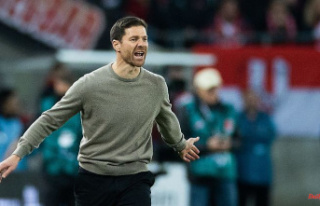The energy price brakes should not only have come earlier, they could also be implemented better and more fairly, write the CDU politicians Thomas Heilmann and Mark Helfrich in a guest article for ntv.de. Their idea: an app that calculates how much support each citizen receives.
The energy price brake train has left the station and it would be bad if it didn't arrive, leaving citizens and companies without help. But it would have been better if the train had been put on the track differently. We need a better system by next winter at the latest, when the energy crisis will probably not be over.
What hardly anyone knows: the "Gas and Heat Expert Commission" was not completely free in the elaboration of its proposals. This results in two wrong decisions with serious consequences. First: The aid should not be designed as an application procedure, but the benefits should benefit all households, regardless of their economic situation. It would have been more social to give more help to those who really need it instead of supporting everyone with a watering can - even those who are already strong. Secondly, digital solutions were not an issue for the Commission from the outset. After the five lost months that the coalition frittered away with the gas surcharge, this is another serious omission by the traffic light in the fight against the energy price crisis.
The energy price brakes could not (and should) have come earlier, they could also be implemented better and more fairly: digitally, socially and purposefully.
A digital energy price brake would be better, which takes into account the actual energy consumption and the available income and would therefore have a more social and targeted effect. This is no longer realistic in the short term after the decisions of the Commission, the cabinet and the Prime Ministers' Conference at the end of October and the legislative procedures now planned to take place within a few days, but it should definitely be taken into account for the next round.
A fair differentiation of who needs to be relieved to what extent would be relatively easy to implement through better data availability on energy consumption, household size and income:
Paying out is also easy to do. The app could generate a QR code that you can present to banks and have the corresponding amounts credited to you. Banks would be obliged to read QR codes for people without access to digital devices free of charge, just as pharmacies would help with corona vaccination certificates, for example. The banks would have the amounts paid out reimbursed either by the Bundesbank or by a (federal) authority. And similar to the pharmacies, the federal government could at least pay small landlords a flat rate for the effort to create and send the certificates.
The system outlined here could of course also be used to support companies. Many other modifications are conceivable, such as the use of the electronic ID card. Programming such an app is much easier than the Corona warning app, which was also successfully introduced in a short space of time. It would be a boost for digitization in Germany. It would be much fairer than the planned taxation of aid, which is also still on shaky ground. The December payment is already tax-free. Finally, it's a lot simpler for everyone involved than the complicated, watering-can, and anti-social traffic light model.
The Union does constructive opposition work. It behaves in a state-supporting manner by helping the traffic lights by waiving parliamentary rights so that the train with the energy price support can run as quickly as possible. And at the same time we are developing concepts of how it should actually be done. Maybe it will convince the federal government to introduce such a system at least next year.
Thomas Heilmann, MdB (CDU), is the federal chairman of the KlimaUnion, Mark Helfrich, MdB (CDU), is spokesman for energy for the CDU/CSU parliamentary group in the German Bundestag












